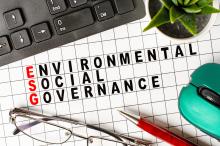Can you imagine a world without personalised Spotify playlists, curated social media feeds, or recommended cat videos on the sidebars of YouTube? These modern-day conveniences, which were made possible by artificial intelligence (AI), also present a scary proposition – that the machines could end up knowing more about us than we ourselves do.
Above: SMU Lee Kong Chian Professor of Law (Practice) and founding Director of SMU’s Applied Resea
Associate Professor Warren Chik from SMU’s School of Law takes a deeper look into consumers’ trust, organisational security, and government regulation as AI becomes an integral tool for the management and processing of data.
In recent years, blockchain technology has been hailed as a breakthrough disruptor, poised to drive innovation in virtually every industry ranging from legacy organisations to game-changing start-ups in the new digital economy. This revolutionary technology stems from the ability of blockchain to act as a decentralised distributed ledger. It promises more secure real-time transactions and record-keeping, making it harder for important data to be manipulated or falsified.
The world is playing catchup. Thanks to the pandemic, digital transformation and disruption are running full pelt. But think of that energy as a steel spring that’s being stretched tighter and tighter.
The issue is how to define the concept of data sovereignty, especially when businesses and governments wrestle to enshrine it in law across international and continental borders.
Autonomous vehicles (AVs) are becoming an increasingly popular mode of transport, and their legislation have to quickly evolve to accommodate this rising movement. As autonomous vehicles become more prevalent, it's important for legislators to keep up with the latest developments in order to create smart policies that will benefit their constituents.
“Green economy” and “green finance” are common buzzwords these days as the world faces a deluge of environmental crises. But what exactly is a green economy, and how do we navigate the web of ESG impact measurement?







